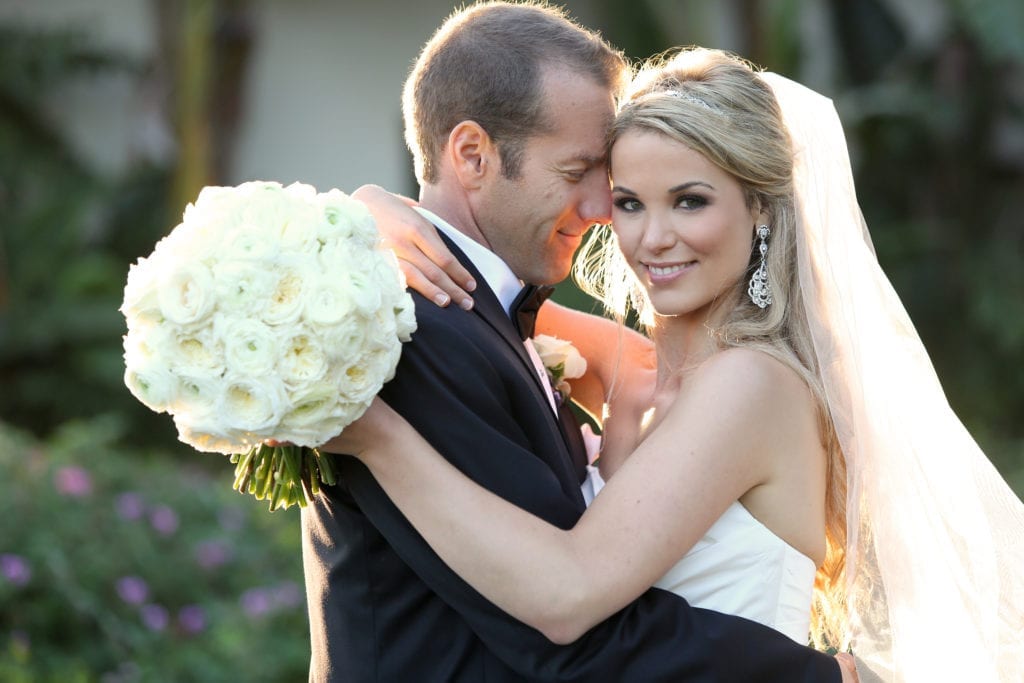
Choosing between lover or spouse: You have a decision to make.
It may be that somebody has told you that you’re not in love with this other person, that it’s a fantasy, an infatuation, or that it will go away. I’m assuming you’re here because you’re trying to choose between leaving to be with your lover or staying with your spouse. In other words, you’re married, but you’re thinking: “Maybe I should end the marriage and go to be with this other person because I’ve never felt love like this.”
If you expect me to tell you that you’re not in love with that person, then you need to change your expectations. I won’t. I understand that you are in love with that other person and will not deny that, but I will ask you to think about a couple of things as you plan your future.
You need to make the best choice concerning everyone (especially yourself) as you make this choice.
My name is Dr. Joe Beam with Marriage Helper. We deal with all kinds of topics having to do with relationships, including this: “I am married to one person, but I am in love with another person. So I’m trying to decide whether to end my marriage and go be with this other person.”
Now understand, it is a “kind” of love. In the social sciences, we can identify various kinds of love. By the way, the one we never try to identify is true love. Why? Because that’s whatever a person is feeling at the moment. It’s too subjective or too different per individual. Therefore, we can’t quantify or identify it.
But, there are many kinds of love we can identify. For example, if you’re madly in love with this other person, we can look at specific characteristics and classify them as limerence in the social sciences. It’s a kind of love, without a doubt. It’s an intense kind of love. If you’d like to learn more about it, be sure to check out our other articles and videos. Look for the ones that talk about limerence.
I understand it. I’ve experienced it.
I’ve been in the very spot that you’re in now. I was married to one woman, and I was madly in love with another. So I had to make a choice.
“Will I end this marriage? Will I divorce my wife so I can go be with this person who is the true love of my life?” To me, it was the kind of thing that people today call “soulmates.”
I understand the intensity of that decision. But the very fact that you’re reading this means that you haven’t decided. Now, I’ll suggest a thing or two that you should seriously consider if you’re trying to make that decision. What I would call “essential considerations.”
First, Think About Who Your Decision Will Effect
One would be, “Who all will be affected by your decision?” Someone is going to be hurt by whatever decision you make. You say, “What do you mean?”
Well, if you’re married to one who loves you and wants to be with you and if you leave them for this other person, then you are hurting the person you’ve been married to for a while.
Or if you decide, “No, I’m going to end my relationship with this person that I’m madly in love with, and I’m going to go back and make my marriage work,” then you’re going to hurt that person.
And by the way, either decision is likely to wind up hurting you.
So, it’s not a matter of, “How can I make a decision that hurts nobody?” Because at this point, that’s an impossibility.
I mean, I wish it were a possibility, but it’s not. Someone’s going to get hurt.
The Possible Negative Effects On Children
Oh, and by the way, if you have children in this marriage, then you’re going to hurt them too. No matter how old they are, it’s going to cause them some kind of pain. So younger children have some effect that comes from the parents’ divorce. Older kids have a little bit of a different impact from divorce.
If you’re thinking, “Well, how are children hurt?” There’s a plethora of research out there about that. I’m not saying it’ll doom your children, or it’ll destroy their lives forever. But, understand this (because I will never lie to you); it’s almost impossible for it not to hurt them.
For example, if you have school-age kids, we know that some of the ways it will manifest itself will be in their grades, particularly in courses involving logic, like science and mathematics. Why? Because their emotions will become a little bit raw. And it’s also more likely that they will get involved in some kind of behavioral problem. I’m not saying they necessarily will, but the odds of that happening increases.
Also, if you divorce and have kids, and your spouse winds up marrying somebody else, then those kids will have exposure to that other person. Now, you’ve got a whole new thing going on. You’ll consider how good a new person is; this new person might enter the picture if your spouse remarries.
Your kids get exposed to other relationships.
You have to be thinking, “Wow, I don’t know if that’s always going to be a good man or woman in my kids’ lives. How are they going to be affected by that?”
Now, I’m not trying to beat you up. Remember, we always tell the truth no matter what. All I’m trying to say is, if you’re going to make this decision, I hope you’re considering things. If you’re a good person trying to make a decision that’s going to cause the least amount of damage as possible, you’re going to be thinking, “Who’s going to be affected, and how is it going to affect them?”
Now, be honest with yourself. Don’t listen to somebody who says, “Oh, kids are resilient, no big problem, they’ll get over it, that’s fine.”
One guy who was leaving his wife for a woman that was 20 years older than him interestingly said, “She told me that my three year old and my one year old wouldn’t have any negative effects if I leave those two little girls and come be with her. Because years and years ago, she left her husband, and it had no negative effects on her little girl at all.”
Now, I asked him this question: “Do you think, since she wants you to be with her, that she might be a little bit slanted in her opinion about this?”
And because she doesn’t want to feel bad about whatever could have happened negatively in her daughter’s life. “Do you think maybe she wants to see only the good and not the bad?” So, in other words, I’m not sure that that person is a good resource to help you make that decision.
She has a biased interest in you deciding a particular way.
We sometimes hear counselors and therapists say, “Kids are resilient. No negative problems, everything will be fine! I’ll help him get through it.”
That’s wrong! If they tell you that the kids are resilient or that “there are no long-term problems and that they’ll get over the short-term problems very quickly,” that counselor or therapist does not know what they are talking saying.
Good counselors are fantastic! If you’ve got a good counselor, use him or her to help your kids if you decide to make any decision that causes your kids pain. But, be very careful that they don’t say, “kids will get over this fast.” Article after article after article in the scientific journals or social science journals all have information about all the various ways this negatively affects kids.
Now I’m not saying you can’t make your own decisions. Indeed, you can. But I’m saying, “Be honest with yourself.” Don’t believe the lie or tell yourself the lie, “No problem! The kids will be fine, and there won’t be any negatives of this to them.” At least be honest and say, “If I decide to go this way rather than this way, then this is how it’s going to affect my kids.”
At least be honest with yourself because you love your kids.
And if you’re thinking, “But I don’t have kids. You just spent a ton of time talking about kids, and that does not apply to me.” Well, still think about the lover and the spouse. Because whichever decision you make will harm them.
You say, “Well, how?” Your spouse will go through a mourning period because you’re not going to be there if they want you to be there. That’s kind of a “death” in a sense. Also, it’s going cause your spouse to have a lot of self-questioning, like, “What’s wrong with me? What did I do wrong? Why am I not equal to this person that you left me for?”
You know that they will go through those kinds of things no matter what you say and what you do; they’re going to.
On the other hand, if you leave the lover and go back to your marriage, then the lover is going to go through those same kinds of things, wondering, “What’s wrong with me? Why would they leave me? How in the world could you come and get involved with me and lead me to love you so dearly and now back out of it?”
It’s a tough decision. And as I’ve already said, either way, somebody’s going to get hurt.
Here’s How Limerence Happens
If you are deeply in love with this person, experiencing this thing we in the social sciences call limerence, you probably didn’t go looking for it.
I mean that there was a person in your life that you had some “contact” with. Maybe they worked in the next office or saw them at lunch because you always went to the same place. Perhaps you went to the same church. Maybe this other couple was your best friend, and that’s how you got involved with them because you always had access. Access is the key.
In the beginning, you found out you could talk to this person about things that you typically don’t share with other people. They were very accepting. You probably didn’t have your first conversation that way. But because you liked each other, enjoyed each other, or found them attractive, things changed. Somewhere along the line, you started opening up and sharing your heart, mind, thoughts, fears, aspirations, and all those kinds of things.
Conversations with them began to become like the following: “Nobody gets me as you do. Nobody’s ever understood me as you understand me.”
Then they started opening up to you. So that understanding got stronger, not just this other person understanding you, but you understand them, and then you formed an intense emotional connection.
For example, “I don’t think anybody else has ever felt this way, ever. I mean, why couldn’t my marriage be like this? Why have I never experienced a relationship like this? I don’t even know how to tell anybody else because I don’t think anybody else has ever felt this way.”
It’s almost like two souls are merging into one body.
That connection is so immense that you don’t want to lose it, yet you are reading about it here. This probably means that you are also thinking, “But I’m married to this person over here, and it would be wrong to leave him or her for my lover.”
So, you start hiding things.
You started going places where Nobody would know where the two of you were. You talked about things beyond what you can or should talk about with anybody that isn’t your spouse. Maybe you probably held hands, which led to hugging, which led to kissing, and in all likelihood, you made love to each other, and you have had a mixture of feelings about that.
You’ve been hiding and hiding, and you don’t want to hide anymore.
You don’t want to have to sneak off to some restaurant in another town. You don’t want to slink off to some hotel somewhere. In fact, you want it to be open. You just want to be with this person. So that’s how it all began, and now you’ve arrived at the present.
Here’s What Limerence Causes
If you have an emotional struggle with making the decision, “Do I leave with my lover, or do I stay with my spouse?” You’ll probably be going through this thing that we in the social sciences call cognitive dissonance. That’s what happens when you do something against your beliefs and values.
It messes you up inside. You feel bliss when you’re with this other person, and you miss them when you’re not with your lover, but then, on the other hand, you feel guilty about it as well when you look at your children or your spouse.
Or maybe you’re still going to church if you’re a church person, and you’re sitting there listening to the pastor speak, and you have these pangs of guilt. It’s ripping you apart. So you get into this emotional roller coaster.
Because your beliefs and values are one thing and what you’re doing is a different thing, then it’s kind of messed you up inside. So now, you’re contemplating altering your beliefs and values to make this okay.
Thinking, “Maybe that’ll be a good thing, maybe that’s what I need to do.” And in this emotional roller coaster, because you are so intensely in love, this “limerence thing” with your lover, makes you think about them a lot.
You tend to daydream about the things you’ve done together and the things you’ve discussed. You tend to cherish the little items that you have shared. Maybe you cherish the places that you’ve been together. You tend to fantasize about the future, the “what it would be like with them?” You feel all this ecstasy. Then, when you’re with them, you see signs of reciprocation, or you can see the love or even hear the “want” in the voice. Then, it seems like, “Ah, this is heaven. This is amazing.”
But, you’re also aware when your lover starts acting differently.
For example, sometimes you see that they are “not having a good day,” and sometimes they may appear to be pulling away from you a little bit. Or, sometimes they seem negative when they’ve been so warm and friendly, and you’re watching for signs of rejection.
Any time you think they are not reciprocating this amazing love you have, this “deep longing” you have to be with each other, it just makes you feel miserable.
You may even have had physical manifestations when you think about them pulling away from you: heart palpitations, an upset stomach, sweating, or rapid breathing.
Even if you don’t have the physical manifestations, you can experience the emotional ones, such as: going from ecstasy to misery (sometimes that fast) and then thinking to yourself, “Oh my goodness, what’ll happen if she goes away or he goes away?”
You’re struggling with this; maybe you’re comparing. You’re comparing your lover to your spouse. When you do, your spouse almost always loses. This is because your spouse is “keeping you” from being with your lover.
So, when you make those comparisons, your spouse tends to lose. Even if you say good things about them, like, “Oh, but I love him, I love her. They are a good person. I can’t say anything bad about them.” You know in your mind, whenever you compare the two, who wins. That’s the present you live in, and it’s got you miserable.
Consider Your Decisions Wisely
Now, you’ve got to do something. When it comes to your future, you know you can’t live like this.
You’re going to make a decision. You’re going to decide either to end your marriage and be with your lover, or you’re going to end this affair and try to make your marriage work.
By the way, don’t try to do both those things simultaneously. Don’t think, “Well, I need to decide about this and fix my marriage or decide about my marriage at the same time.”
They are TWO different decisions:
“What are you going to do about this?” That’s decision number one. Then, “Am I going to try to make my marriage work?” That’s decision number two.
Count the cost. What I mean is,
- What do you have to gain if you leave with your lover?
- Do you have something to gain if you stay with your spouse?
- What do you have to lose if you leave with your lover?
- What will you have to lose if you stay with your spouse?
- Will you gain anything by staying with your lover? “Oh, I’m going to get to be with this person that I feel these amazing emotions for. That’s worth all the loss on the other side.”
Here’s the bad news. I’ve been there. I know how this feels. Not only have I, but thousands of people also have. I know you don’t believe that. Right now, you think, “Nobody’s ever felt this way.”
But yes, thousands upon thousands upon thousands have. I’ve worked with a ton of them myself. So, in addition to my own story, I’ve heard their stories, and I can tell you this: What you feel right now, this intense positive emotion you’re feeling at the moment toward your lover, is not going to stay that way forever.
I know you think it will; in fact, I know you believe it will. You’re looking at me, thinking, “You’re an idiot. You have no idea what you’re talking about.” That is precisely what I would have said when I was in the situation you’re in right now. But eventually, it’s going to change.
Right now, you make decisions thinking, “This is the way I’m going to feel; what they are going to feel for the rest of our lives. Therefore it’s worth all I’m going to give up for it.” And I’m telling you, guaranteeing you, it’s going to change. It cannot stay that intense. Nothing in life can stay that intense. It’s going to end. And so, think about this: “What am I going to gain, what am I going to lose?
The 10-10-10 Rule to Follow When Choosing Between Lover Or Spouse
Suppose you decide to get in that relationship with your lover. What you realize someday is that your feelings begin to fade. Do you know that in all likelihood, even if you divorce your spouse for this person, the possibility that you’ll wind up marrying this person is extremely low?
And if you do marry the person, the likelihood of you divorcing is exceptionally high, extremely high. Most of these couples just don’t make it long-term. Part of the reason has to do with counting the losses. They are going to count the losses. You are going to count the losses.
You will look over at what you gave up, you look at the person who loved you, you look at your children and what you put them through, and you will look at what it’s cost you in terms of friendships, or even what it’s cost you in terms of your morality.
So, think of it this way: 10-10-10, if you can be honest with yourself. That is: Whichever decision I make, how am I going to feel about it in 10 MINUTES, 10 MONTHS, and 10 YEARS?
Now, if you decide to stay married and end the relationship with your lover, you’re going to grieve. You are. You’re going to mourn. You’re going to go through a lot of misery because you’re giving up someone very important to you.
But think 10-10-10, not just how it’s going to feel right now, or even in ten days. But ten months ahead, how is it going to feel? It’s going to change some. And in ten years, am I going to look back and be very happy about the decision I made for my life? So if you can, think that way.
One last thing for you to consider. Consider who YOU are. Because if you change your beliefs and values to do something in contradiction to your beliefs and values, you will become a different person.
You can look at yourself in the mirror someday (or maybe you already have) and think, “Where’s the ‘me’ I used to be? Where’s the good guy, the good gal; where’s the person I liked being? Why have I become somebody different?” When you change your beliefs and values, you become a different person.
We Want To Help
There are a lot more things to consider. Contact us here to talk to one of our Client Representatives, and we can help lead you to good resources for you to use as you make this decision.
Again, think carefully about your future before you make the decision. Get some people to help you think about all sides of it. It’s your decision.
We’re here, and we would like to help.
Choosing between a spouse and a lover can feel unbearable. We can help. Get This Free Guide!
If your marriage is in danger of separation or divorce, call us at (866) 903-0990 to speak with someone or fill out the form here to request more information about our Marriage Helper Workshop for troubled marriages. Our success rate over the last decade is saving 75% of marriages that come to our workshop, even when adultery, porn, anger, or other things have deeply hurt the relationship! (If you’re thinking your spouse would never come, contact us by phone or the form below and we’ll tell you what others who felt the same way did to get their spouses there.) We will keep everything you tell us completely confidential. Our motivation is to help you determine if this workshop is right for your particular situation. We also offer solutions for couples who can’t attend the workshop.
WE WANT TO HELP
At Marriage Helper, we’ve walked alongside thousands of couples and spent decades researching what really works to strengthen marriages. Our goal is to provide you with practical, research-backed guidance—like the free information you’ve found on this page—because we genuinely care about helping marriages thrive. If you’re ready to go deeper, our workshops, membership, and one-on-one coaching offer even more tools, insights, and personalized support to help you navigate your unique journey and create lasting change in your relationship.
Our intensive Marriage Helper Workshop has a remarkable 70% success rate in saving marriages, even if your spouse is reluctant or unwilling to participate. And here’s what’s even more encouraging: 99% of participants recommend our program to others, regardless of their ultimate outcome.
Learn more about:





